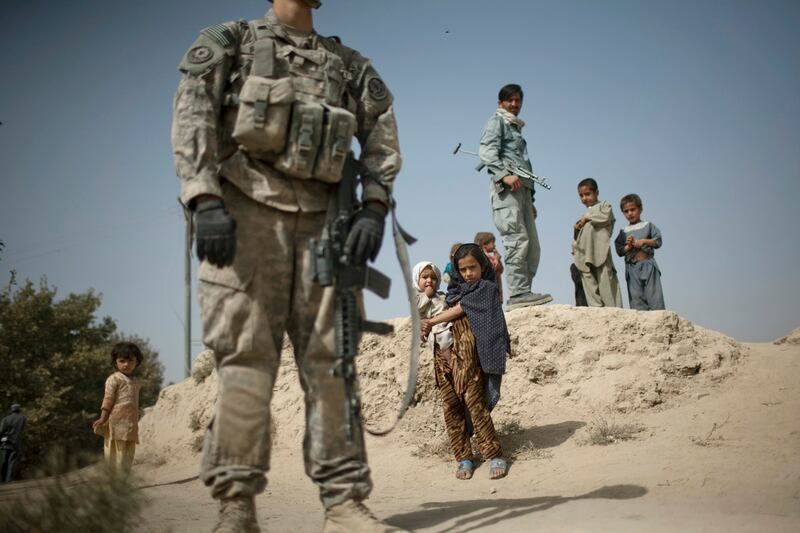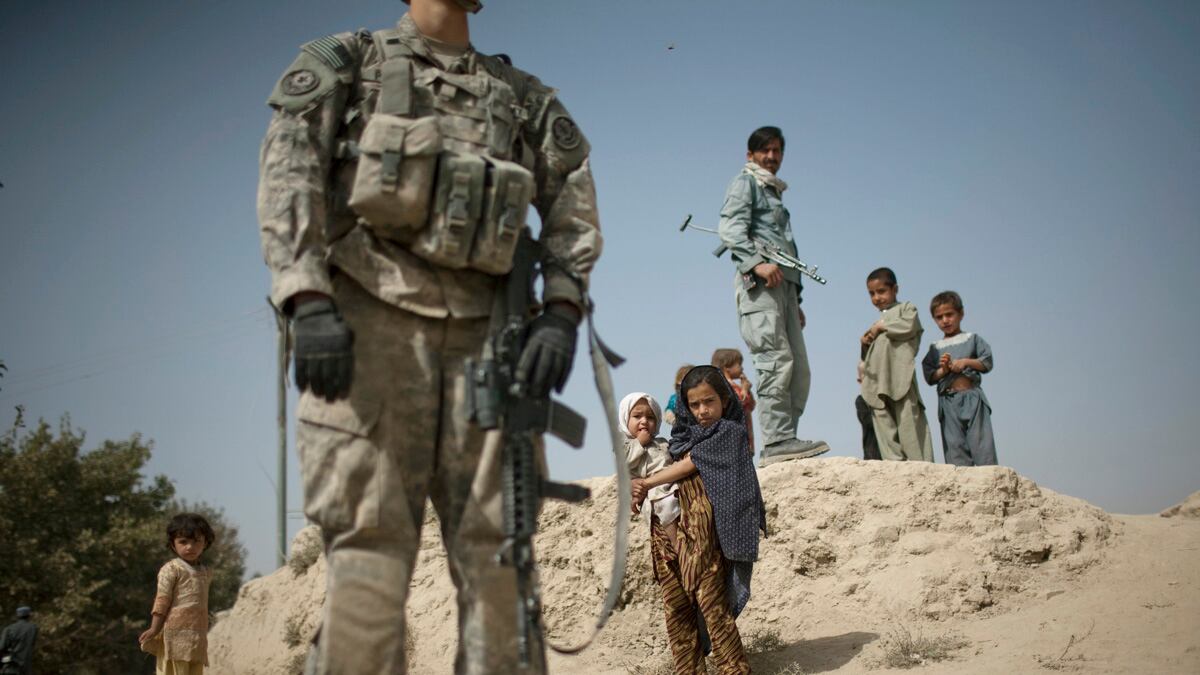“It’s almost eerie how quiet it is, isn’t it?” a friend said to me as we stood on a tranquil street corner in Kabul on Monday. Everyone seems to be waiting for the next explosion.
In Afghanistan, the hits just keep coming: continuing civilian casualties, protests over U.S. soldiers burning copies of the Quran at a military base, President Hamid Karzai’s alternating intransigence and unpredictability on a variety of issues from peace talks to handling of detained Taliban.
Only a week ago, those of us who live and work in Afghanistan thought that everything that could possibly go wrong to sour relations between the United States and Afghanistan had already happened.
Then, on Sunday morning, a U.S. soldier left his base in the southern province of Kandahar and systematically murdered 16 Afghan civilians, the majority of them women and children. Afghans and international residents braced for another round of violent protests.
Curiously, the response to these killings has been relatively muted. Afghan officials were quick to call for calm, and U.S. and allied leaders rushed to express deep regrets and condemnation. Protests have been largely small and nonviolent. Karzai has pressed for a quick and public trial—but has not insisted that the soldier be prosecuted in Afghan courts, a demand that would have put him on a collision course yet again with the U.S. There has been a swift and concerted effort to discount rumors that multiple soldiers were involved. President Obama is calling for a steady course, arguing against an accelerated exit from Afghanistan that would leave chaos in its wake.
It is a relief that Afghanistan has not gone up in flames over this most recent human catastrophe. But the apparent calm in Afghanistan masks a complicated set of emotions among many Afghans: deep fatigue and anger about the role that foreign military forces have played in their country, along with huge anxiety over what the future holds.

Afghans are increasingly frustrated with the foreign military presence—this is undeniable. The killings on Sunday are one more reason for many Afghans to feel frustration, rage, and despair. Meanwhile, amid the heightened rhetoric of a U.S. presidential campaign, increasing numbers of Americans say in polls they want an end to American involvement in Afghanistan.
This toxic mix of fatigue on both sides has the potential for devastating human rights in Afghanistan.
The U.S. is involved in Afghanistan in three ways—and military intervention is only one of them. The other two are political engagement and aid programs. The military, political, and humanitarian portfolios are related but separate. Whether or not Afghans want the U.S. military to leave—and there is a wide range of opinions on this—most Afghans probably do not want an end to the other two forms of international involvement: political engagement and humanitarian aid. Many Afghan citizens appreciate the gains in education, economic development, jobs, campaigns to raise awareness on maternal and infant mortality, a flourishing media, and a thriving private sector. There have certainly been missteps and cases of corruption. But while there are many lessons to be learned from what efforts have not succeeded, it is fundamentally true that international support has played a crucial role in improving the lives of many Afghans.
Many Afghans also realize that international pressure is vital to sustaining human-rights gains. There have been human-rights improvements in Afghanistan over the last 10 years, yet the overall rights situation remains precarious. Pressure to reach a peace deal or compromise with the Taliban as international forces depart will endanger the rights of all Afghans, especially women.
Afghan women were reminded of how tenuous their progress is when President Karzai this month defended new guidelines instructing women not to travel without a chaperone or mix with men in the course of work or education or in public.
In the rush to discuss the schedule for the U.S. military’s departure, the concept of making a long-term nonmilitary commitment to Afghanistan is being lost. If the international community pulls out of Afghanistan in toto, it will undermine human rights for all Afghans. Fewer girls—and boys—will learn to read. More babies will die; more mothers too. Afghan women will be left to fight for their rights the best they can without Afghan leaders worrying that the world is watching.
The bloody Sunday tragedy in Kandahar will bolster calls for a pullout both in the U.S. and Afghanistan. But it must not undercut vital work to assist Afghans with education, health care, and justice. An endgame for the military in Afghanistan should not be an endgame for human rights.






